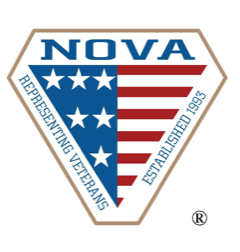Unemployability/ TDIU
All Veterans are Entitled to TDIU -What is VA Unemployability?
Total Disability based on Individual Unemployability (TDIU) is a VA disability benefit that compensates veterans at the 100% disability rate, even if their combined schedular rating is less than 100%. Veterans who cannot secure or maintain substantially gainful employment due to service-connected disabilities are titled to this maximum schedular rate. VA divides TDIU claims into two types: schedular (the easy on) and extraschedular (the slightly harder one).
What Makes Veterans Eligible for TDIU?
Eligibility for TDIU requires an other-than-dishonorable discharge and that the veteran is unable to maintain substantial gainful employment due to service-connected physical or mental impairments. This benefit is not limited to specific types of disabilities; any service-connected impairment that significantly hinders employability qualifies a veteran for TDIU.
How Do Veterans Apply for TDIU?
VA requires veterans to complete VA Form 21-8940, which requests detailed, information about:
-
The nature of service-connected conditions preventing gainful employment.
-
Any hospitalizations or medical care in the past 12 months.
-
The date when the veteran became too disabled to work.
-
Employment history for the last five years of work (not the immediate past five years).
-
Education and vocational training received before and after becoming too disabled to work.
Schedular TDIU Requirements (yes, the easy one)
One service-connected disability rated at least 60% disabling, OR
Multiple service-connected disabilities with one rated at least 40% and a combined rating of 70% or more. Most veterans can probably navigate filing this easy one on their own or with a local VSO free of charge. However, if you would rather jump on board with our firm we can also represent you.
Extraschedular TDIU (just a little harder but absolutely winnable)
Extraschedular TDIU is awarded under 38 CFR § 4.16(b) (the easy one is (a)) when a veteran's disability presents an exceptional or unusual disability picture that the standard rating schedule cannot accurately reflect. This may include marked interference with employment or frequent hospitalizations, suggesting the need for a higher rating than what was awarded per the Diagnostic Code.
Extraschedular TDIU Why is it the Hard One?
Applying for extraschedular TDIU requires compelling the Regional Office (RO) to forward the claim to the Director of Compensation for an advisory opinion. This step is what makes it hard because the local VSR’s (rating specialists) refuse to do
Veterans Service Organizations (VSOs) and attorneys often prefer schedular TDIU cases over extraschedular ones due to this complexity. The key lies in convivncing the RO to send the case for an advisory opinion. We do this by requesting pre-determination hearings and HLR conferences so we can get an actual human being on the phone. Once this hurdle is overcome, the claim proceeds on the same procedural grounds as a schedular TDIU case.
Extraschedular TDIU Challenges and Approach by Lowry Veterans Law Ltd.
Attorneys at Lowry Veterans Law Ltd. specialize in navigating these complexities. Unlike many Veterans Service Organizations (VSOs) and attorneys who may shy away from extraschedular cases due to their demanding nature, we embrace these challenges. Our expertise lies in effectively advocating for the veteran's claim at the RO level and ensuring that the case is escalated appropriately.
We focus on meticulously preparing and documenting each claim to highlight the significant impact of disabilities on the veteran’s ability to engage in substantially gainful employment.
Get Lowry Veterans Law Ltd Get Your TDIU Claim Granted
Free case evaluations and accredited attorneys await you here. If you want to file for TDIU on your own, great, we’re here for you if you don’t win.




Disclaimer: This information, while not legal advice, is a powerful educational resource. It's designed to provide a general understanding of the law and to equip you with general information. It's important to note that this information is not a substitute for legal advice. By using this information, you acknowledge that there is no attorney-client relationship created by your reading or use of the information contained on this website or in this newsletter, article, or blog. Additionally, case summaries, reports of past results, individual lawyer biographies, news posts, and other information related to past and present cases are provided to inform the public about the activities and experience of our law firm. They are not intended as a guarantee that we will achieve the same or similar results in every case we handle. We encourage you to reach out to us and we value your calls, letters, and electronic mail. However, it's important to understand that contacting us does not establish an attorney-client relationship.
